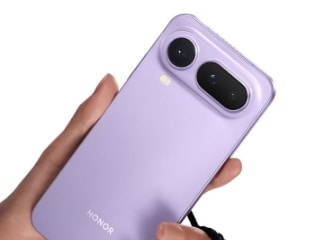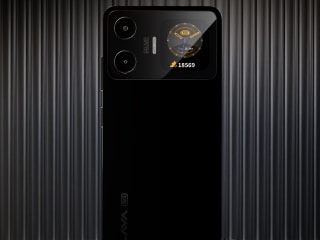Meta Testing Facial Recognition to Spot Scam Ads That Use Celebrity Images, Faster Identity Verification
Meta said it will use facial recognition on suspected scam ads to verify if the celebrity images are genuine or fraudulent.

Photo Credit: Meta
This test is being run on both Facebook and Instagram
Meta announced that it's testing facial recognition technology to detect scam ads and assist users in faster account recovery on Monday. The social media giant is specifically targeting “celeb-bait” ad scams, where scammers use images of celebrities and public figures to lure users into interacting with the ad and clicking malicious links. Additionally, the Menlo Park-based tech giant is also testing using video selfies to let users quickly regain access to their compromised accounts. The company said it aims to proactively remove harmful content from its platforms to create a safer experience for users.
Meta Testing Facial Recognition Technology
In a newsroom post, the social media giant detailed its approach to using facial recognition technology. Meta is currently working on using the technology in two ways — detecting “celeb-bait” ad scams and identity verification for quicker account recovery.
Highlighting the issue of “celeb-bait” ad scams on Facebook and Instagram, the company said that scammers often use images of public figures to make users interact with ads. Users are asked to click on fraudulent links, and because of the trust factor of the celebrity, some fall for scams.
So far, Meta has used the native ad review system to detect fake ads from legitimate ones. This system is based on machine learning and reviews millions of ads that run on its platforms. The automated system analyses the text, images, and videos featured in the ad. Now, to further bolster the system, the social media giant is testing facial recognition.
The company is currently using facial recognition on a limited scale to “compare faces in an ad to the public figure's Facebook and Instagram profile pictures.” In case a match is confirmed and it is determined that the ad is a scam, Meta said it will automatically block it. The technology is also being used to detect and block accounts that impersonate a public figure.
Currently, Meta is in early stages of testing and is using a small group of celebrities and public figures to check and improve the speed and efficacy of detection. “In the coming weeks, we'll start showing in-app notifications to a larger group of public figures who've been impacted by celeb-bait letting them know we're enrolling them in this protection,” the company added. Public figures who enrol in this protection will be allowed to opt out via Account Centre.
Facial Recognition in Account Recovery
Meta is also testing the use of facial recognition to help users regain access to compromised accounts. Many times, Meta's automated systems can flag an account incorrectly and lock it. This could be due to suspicious activity or if a hacker attempted to break into the user's account. Alternatively, proving identity is also necessary if users forget their account passwords. In such cases, users so far were asked to verify their identity by submitting a government identity card.
Now, the social media giant is testing the use of video selfies to quickly let users regain access to their accounts. Users will have to upload a video selfie, and by running facial recognition technology, the company will compare the data to the profile pictures on the account they are trying to access.
In both use cases, Meta claims that it will not store any facial data generated after the comparison is made, regardless if there is a match or not. Additionally, in video selfies, the company stated that the video data will be encrypted and “will never be visible on their profile, to friends or to other people on Facebook or Instagram.”
Catch the latest from the Consumer Electronics Show on Gadgets 360, at our CES 2026 hub.
Related Stories
- Samsung Galaxy Unpacked 2025
- ChatGPT
- Redmi Note 14 Pro+
- iPhone 16
- Apple Vision Pro
- Oneplus 12
- OnePlus Nord CE 3 Lite 5G
- iPhone 13
- Xiaomi 14 Pro
- Oppo Find N3
- Tecno Spark Go (2023)
- Realme V30
- Best Phones Under 25000
- Samsung Galaxy S24 Series
- Cryptocurrency
- iQoo 12
- Samsung Galaxy S24 Ultra
- Giottus
- Samsung Galaxy Z Flip 5
- Apple 'Scary Fast'
- Housefull 5
- GoPro Hero 12 Black Review
- Invincible Season 2
- JioGlass
- HD Ready TV
- Laptop Under 50000
- Smartwatch Under 10000
- Latest Mobile Phones
- Compare Phones
- Tecno Spark Go 3
- iQOO Z11 Turbo
- OPPO A6c
- Samsung Galaxy A07 5G
- Vivo Y500i
- OnePlus Turbo 6V
- OnePlus Turbo 6
- Itel Zeno 20 Max
- Lenovo Yoga Slim 7x (2025)
- Lenovo Yoga Slim 7a
- Lenovo Idea Tab Plus
- Realme Pad 3
- Garmin Quatix 8 Pro
- NoiseFit Pro 6R
- Haier H5E Series
- Acerpure Nitro Z Series 100-inch QLED TV
- Asus ROG Ally
- Nintendo Switch Lite
- Haier 1.6 Ton 5 Star Inverter Split AC (HSU19G-MZAID5BN-INV)
- Haier 1.6 Ton 5 Star Inverter Split AC (HSU19G-MZAIM5BN-INV)
















